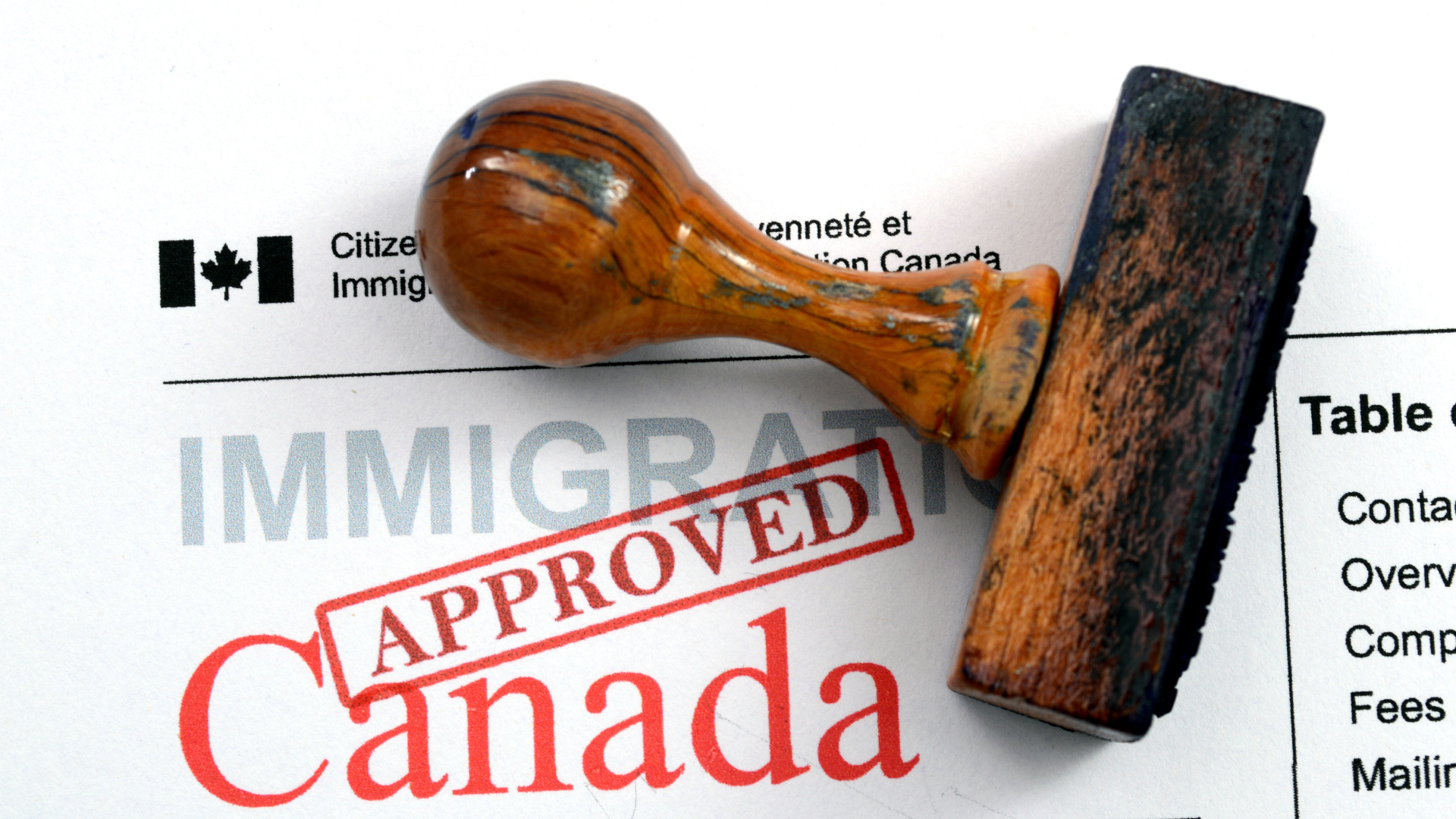A Complete Guide to Spousal Sponsorship for Canadian Immigration

If you are a Canadian citizen or permanent resident, you
may be eligible to sponsor your spouse, common-law partner, or conjugal partner
for Canadian permanent residency. This process is a direct route to obtaining
permanent residency (PR) for your partner, and it may also extend to their
dependent children.
In some cases, if your partner is already in Canada, they
might be eligible for a spousal open work permit (SOWP) while their PR
application is processed. This guide will walk you through the key steps,
eligibility criteria, and costs associated with spousal sponsorship.
Who Can You Sponsor?
As a Canadian citizen or permanent resident, you can
sponsor:
- Your
spouse (legally married partner).
- Your
common-law partner (living together for at least one year).
- Your
conjugal partner (unable to live together due to legal or immigration
restrictions).
- Your
partner’s dependent children (under 22 years old or otherwise qualifying
based on dependency status).
Your partner must meet certain criteria, including being at least 18 years old
and admissible to Canada. They will need to submit the necessary forms,
documents, and may have to undergo medical exams or provide biometric data.
Are You Eligible to Be a Sponsor?
To sponsor your partner, you must:
- Be
at least 18 years old.
- Be
a Canadian citizen, permanent resident, or someone registered under the
Canadian Indian Act.
- Be
able to financially support your family.
- Not
be receiving social assistance (except for disability reasons).
If you're a permanent resident, you must be residing in
Canada. If you are a Canadian citizen living abroad, you must show your intent
to return to Canada with your partner once they obtain PR.
Disqualifying Situations
You cannot sponsor your partner if:
- You
were sponsored yourself and gained permanent residency less than five
years ago.
- You
are still bound by a financial undertaking from sponsoring a previous
partner.
- You
are bankrupt or have defaulted on immigration loans.
- You
have a criminal record involving violence or sexual offenses.
- You
are under a removal order or incarcerated.
Spousal Sponsorship for Quebec Residents
If you live in Quebec, there are additional steps and
specific requirements to meet. You will need to submit your application to both
Immigration, Refugees, and Citizenship Canada (IRCC) and the Ministère de
l'immigration, de la francisation et de l'intégration (MIFI). Quebec has a cap
on family sponsorship applications, with a limit of 13,000 for the 2024-2026
period. After reaching this cap, applications will not be processed.
The processing time for Quebec applicants ranges from 34 to
36 months.
Types of Relationships You Can Sponsor
- Spouse:
Legally married to you, with the marriage recognized in both the country
where it took place and Canada. Proxy marriages are not accepted.
- Common-law
Partner: Living together continuously for at
least one year, sharing financial and emotional support, and presenting as
a couple publicly.
- Conjugal
Partner: A couple in a committed relationship for
at least one year but unable to marry or live together due to legal,
religious, or immigration barriers.
Inland vs. Outland Sponsorship
There are two ways to apply for spousal sponsorship:
- Inland
Sponsorship (Spouse or Common-law Partner in Canada):
If your partner is already in Canada, you can apply under this class.
However, your partner must remain in Canada while the application is
processed. Citizens have the option to apply through outland sponsorship
even while living together in Canada.
- Outland
Sponsorship (Family Class): If your partner lives
outside Canada or if you're a Canadian citizen living abroad, you can
apply under this category. This allows both partners to travel in and out
of Canada while the application is processed. If the application is
denied, you can appeal the decision.
Processing Times
- Inland
Sponsorship: Approximately 28 months.
- Outland
Sponsorship: Around 10 months.
Your Responsibilities as a Sponsor
When you sponsor your partner, you agree to financially
support them for a specific period. This obligation remains even if your
relationship ends or your partner becomes a Canadian citizen. The length of
your undertaking varies:
- Spouse/Common-law
partner: 3 years.
- Dependent
children: 10 years or until they turn 25,
whichever comes first.
If you fail to meet your financial obligations, you may be required to repay
any financial assistance your sponsored partner receives from the government.
Spousal Sponsorship Interviews
In some cases, you and your partner may be asked to attend
an interview with an immigration officer. This is usually done when there are
concerns about the relationship’s validity or if the couple’s history is
complex. During the interview, both partners will be asked similar questions
about their relationship, such as:
- How
you met and your relationship history.
- Family
details and communication habits.
- Plans
for the future together.
It’s important to bring supporting documents such as your
marriage certificate, communication logs, photos, and any other evidence
proving the genuineness of your relationship.
Fees for Spousal Sponsorship
Here’s a breakdown of the fees required to submit a spousal
sponsorship application:
|
Fee Type |
Amount |
|
Sponsorship Fee (spouse/common-law) |
$85 |
|
Principal Applicant Processing Fee |
$545 |
|
Right of Permanent Residence Fee |
$575 |
|
Biometrics Fee |
$85 |
|
Total |
$1,290 |
Additional fees apply if you are sponsoring children, or if
third-party services (medical exams, police certificates, etc.) are required.
Quebec residents may also have to pay a separate processing fee.
Final Thoughts
Sponsoring your partner for Canadian immigration is a great
way to bring your loved ones together. While the process may seem complex,
understanding the requirements and steps will help you navigate it smoothly. Be
sure to carefully review all documentation, follow the correct application
process, and meet all sponsorship obligations to ensure a successful outcome.





